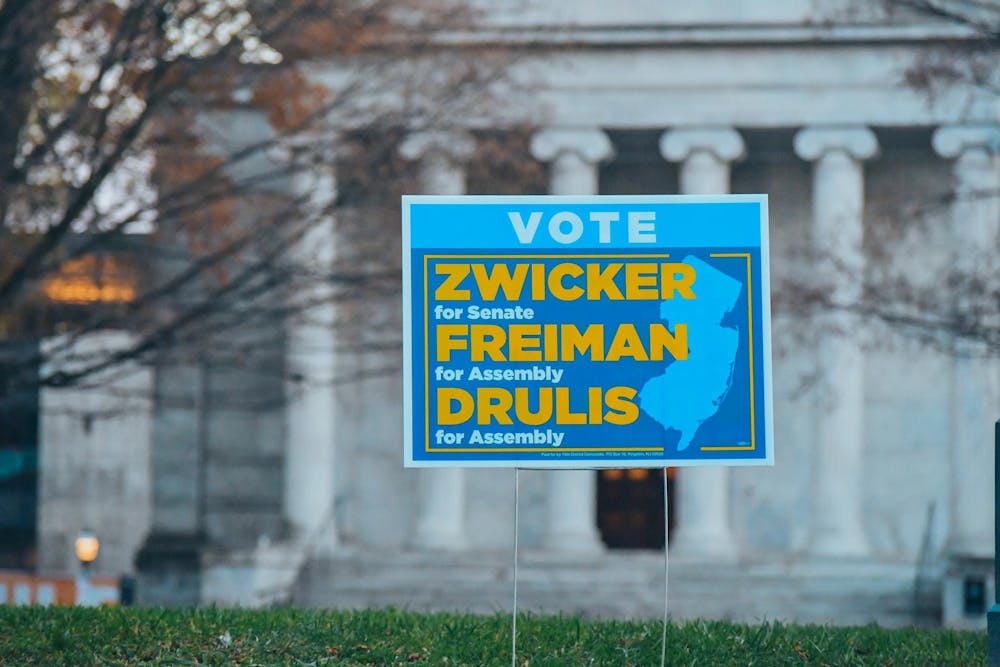As the weather cools and fall settles in, the 2024 general election in November is increasingly becoming a topic of focus across the country, and the town of Princeton is no exception. On Monday, Aug. 26, Princeton Town Council passed a local elections reform resolution expressing support for state-level ranked choice voting legislation.
The state-level legislation — whose primary sponsor is State Sen. Andrew Zwicker from Princeton — would allow for the use of ranked choice voting in local and school board elections. Should the state law pass, municipalities will be able to put a referendum on their ballots in November for voters to approve or reject.
Importantly, the Council’s resolution does not commit to any ballot referendum, but instead serves as a statement supporting state-level legislation that would enable municipalities to enact such referendums should they choose to do so.
The Town Council resolution was largely prompted by Voter Choice New Jersey (VCNJ), a nonprofit committed to achieving ranked choice voting at all levels of governmental elections. The vote makes Princeton the fourth municipality in New Jersey to express support for the legislation, following Hoboken, Jersey City, and Red Bank. VCNJ is focusing on ranked choice voting for local elections as a first step before moving on to additional levels of government.
Ranked choice voting is a system in which voters rank a set of candidates, instead of choosing just one. If no candidate achieves a majority of votes, a runoff occurs where the candidate with the fewest votes is eliminated. Anyone who voted for that candidate as their first choice has their vote allocated to their second choice candidate. If no candidate has a majority, this process repeats until a candidate with a majority emerges.
Larry White, a member of VCNJ, said in an interview with the Daily Princetonian that ranked choice voting matters to him at all levels of government so that “instead of voting with [his] heart in primaries and head in [the] general election, [he] can vote with [his] heart the whole way through” and so that his “vote is not exhausted until there is a majority winner.”
Hoboken and Jersey City have both passed trigger ordinances which would automatically put a voting referendum on the ballot if the state bill passes. In May, VCNJ representatives met with Princeton Mayor Mark Freda and Councilmember Eve Niedergang about potentially implementing a similar trigger ordinance in Princeton.
White told the ‘Prince’ that the Council wasn’t enthusiastic about a trigger ordinance because it would bind not-yet-elected councilmembers to a new electoral process that would impact them in the future, but had been decided by an old council. White expressed understanding on behalf of VCNJ, which suggested that the Council instead pass a supportive resolution. White said VCNJ is celebrating this resolution, but is still eager to expand education on ranked choice voting.
At the Town Council meeting on Aug. 26, David Goodman from anti-corruption advocacy organization Represent Us thanked the legislature, saying, “you are once again putting Princeton on the map.”
Veronica Akaezuwa, also a member of VCNJ, said the resolution is “important in opening the democratic process in New Jersey.”
Multiple U.S. states already use ranked choice voting. Maine uses the system for state primaries and federal elections, and Alaska uses it for state and federal general election contests. Other U.S. cities use ranked choice voting in local elections, including New York, San Francisco, and Minneapolis.
Proponents of ranked choice voting argue that it creates more representative outcomes, eliminates the spoiler effect in which candidates with similar policies split electorate votes, saves money on run-off elections, and increases the number of candidates running.

New Jersey has been criticized for being the only state in the nation to use an obscure county line ballot design. Critics have argued that this allows for political machines — a party structure headed by small groups with unyielding control over the political process — in New Jersey, as candidates endorsed by the county’s party show up in the primary row or column with other challengers scattered and difficult to mark.
Meanwhile, opponents argue that ranked choice voting can backfire if it is perceived as a complicated system — discouraging voter turnout — while School of Public and International Affairs professor Nolan McCarty has argued it hurts minority voters.
Princeton voters may have the chance to weigh in this November, if the state law passes.
Abby Leibowitz is a senior News writer for the ‘Prince.’
Please send corrections to corrections[at]dailyprincetonian.com.








